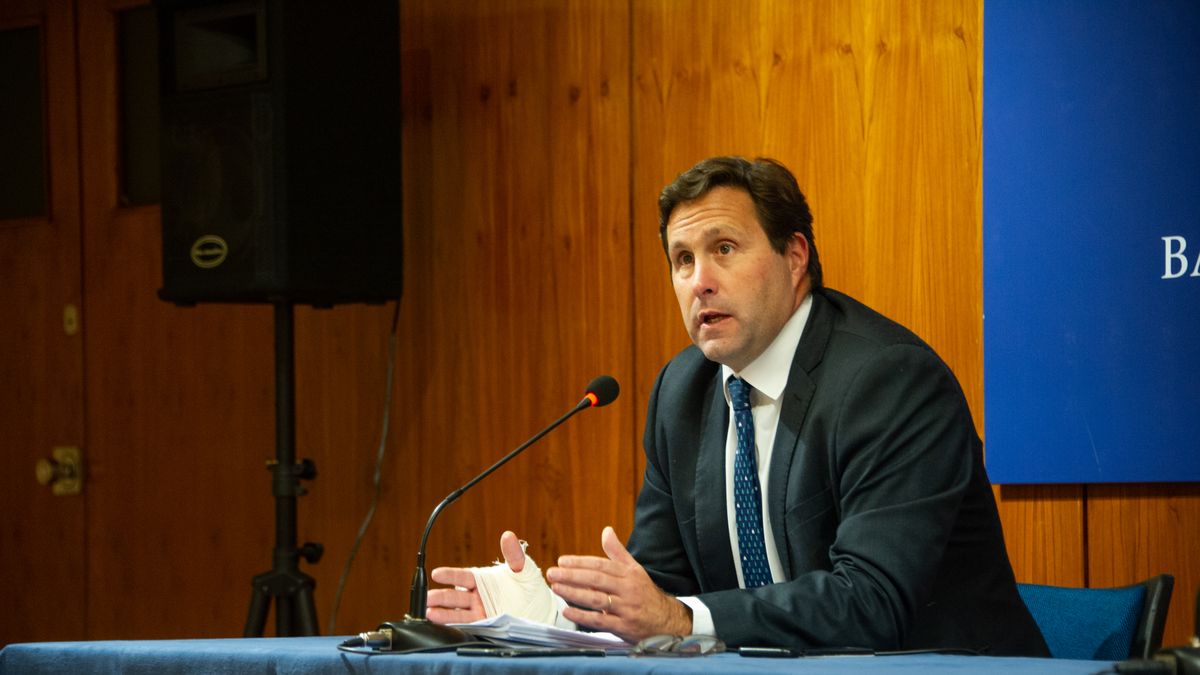The president of Central Bank of Uruguay (BCU), Diego Labat, criticized the initiative Open Town Hall (CA) to gather signatures to achieve a plebiscite that reforms the Constitution and establishes the debt restructuring of individualsand maintained that it is “incorrect” to maintain that “there have been no solutions” for this problem.
While the sector led by Guido Manini Ríos continues with its campaign to gather signatures “for a fair debt”—after the bills presented by the party failed to advance through parliament—, the head of the BCU questioned the actions of the “rebel” partner of the Multicolor Coalition during an activity in Catholic University (UCU).
There, Labat maintained that “to suggest that there have been no solutions is incorrect, first because since I took office at the Central Bank, several measures have been taken that seek to improve the credit market“, he stated and pointed out that “what there has not been is consensus for a law to be voted on.” In that sense, he recalled that there have been bills from all political parties regarding the important indebtedness of a part of the Uruguayans, as well as of the interest rates that are charged for credits.
Although the president of the BCU acknowledged that “There are things to correct” and that “there are proposals on the table”, among them that of the Open Council, he also emphasized that it is necessary for the initiatives to be “well founded” – in an obvious criticism of the lobbyist proposal -, and to “seek solutions that we already know that In other places they worked.”
Solutions
During his presentation, Labat pointed out that in addition to questioning the interest rate levelit is necessary to observe other aspects such as access to credit, market formality, terms and refinancing possibilities.
To illustrate, the president of the BCU pointed out that the current usury law —Law 18,212, of 2007— proposed a “very laudable, but the result was exactly the opposite” solution. In this regard, he explained that in February 2008 the average rate—with which the usury limit is determined—for loans greater than 10,000 Indexed Units (UI), equivalent to 58,089 current pesos, was 36%; which in December 2019 reached 92% and currently stands at 59%.
He also recalled that in the BCU Risk Center There is a registry of almost 2 million people, of which nearly two thirds have a healthy credit behavior, while they are 660,000 people who are qualified as irrecoverable debtors for financial institutions (category 5).
Regarding the latter, Labat insisted that “a certain relativity must be applied, because of those 660,000, 37% have a good category in some other institution” and approximately 290,000 people in category 5 also maintain non-compliance in non-financial companies, such as public services, he explained.
Source: Ambito




